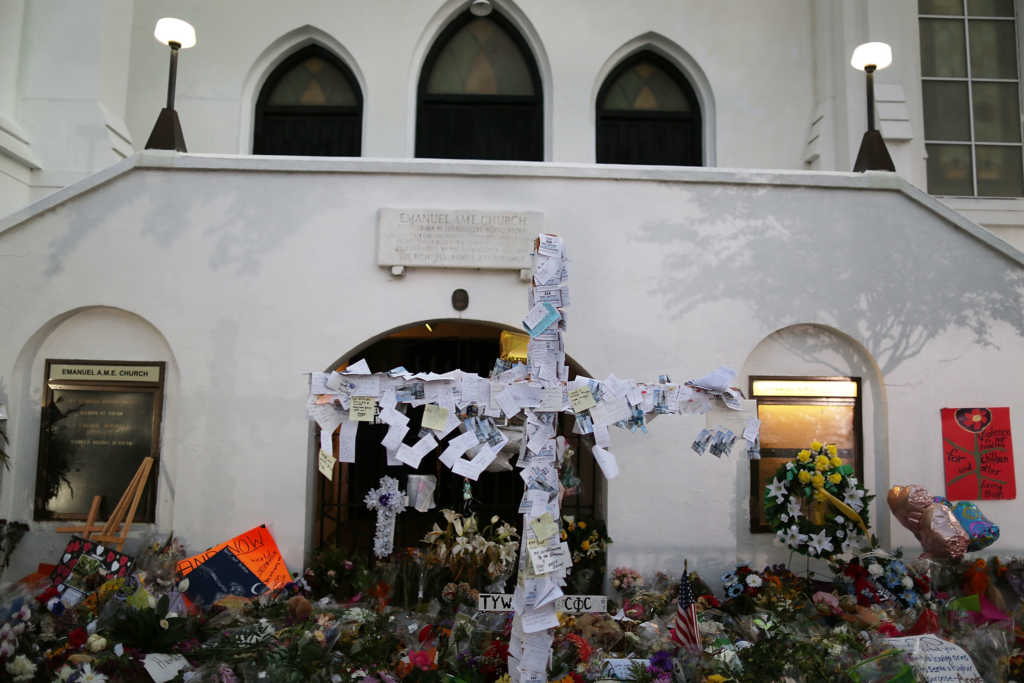There are few moments in recent memory that truly captured the affections of the entire nation, but the horrific shooting at Emanuel AME Church in Charleston, South Carolina, in June 2015 is one of them.
In the immediate aftermath of the shooting, an inexplicable forgiveness became an almost instantaneous zeitgeist that baffled onlookers. For Chris Singleton, a former MLB draft pick whose mother, Sharonda, was among those killed by Dylann Roof, it was that very forgiveness — his own supernatural ability to extend grace to the young white supremacist — that proved to him there absolutely is a God.
“This is why I know that God is real,” Singleton told Faithwire. “Because never in a million years could you tell me that I would forgive the man who murdered my mother the day after, or two days after. There was never an instance where I would have thought that before it actually happened.”
But that’s exactly what did happen. One by one, family members representing those murdered by Roof stood up in the courtroom two days after the hate-filled attack and forgave the gunman as he stood silently in an off-site cell and listened to their statements, words that simultaneously carried the bitter pangs of sorrow and the comforting warmth of hope.
Now, four years later, actor Viola Davis, NBA point guard Stephen Curry, and “Law & Order: SVU” star Mariska Hargitay have produced a brand-new documentary, “Emanuel,” chronicling the breathtaking story of redemption and forgiveness.
The film, distributed by Fathom Events, will be in theaters across the United States for two nights only, June 17 and 19, the anniversary of the deadly shooting that left nine church members dead.
Jeron Smith, CEO of Unanimous Media, Curry’s Sony Pictures-backed production company, told CBS Sports this week the faith-based documentary “weaves together race relations, family, community, and, of course, faith.”
“I can’t think of another film that aligns with our mission and vision more than ‘Emanuel,’” he said. “We created Unanimous and entered the entertainment space to tell stories like this.”
The highly anticipated movie, which was created in cooperation with the city of Charleston, will feature interviews with survivors and family members. And all of Curry’s proceeds from the project will go directly to the survivors and their families.
“Emanuel” will explore and unpack the stunning forgiveness that unfolded on the international stage in 2015. Looking back, Singleton said he knows it was “God putting that on my heart and those words in my mouth, literally.”
“So to nonbelievers who say, ‘How could you do this?’ and, ‘How would you be able to forgive someone so quickly?’ The answer’s simple: it wasn’t just me,” he said.
Four years later, Singleton is still relying on God, and he’s pretty hopeful about the future. Divisiveness, he said, is what makes it into the news. But there are plenty of people who are striving every day to do the right thing — to repair some of our cultural brokenness.
“There’s people that look like me that are striving to bring people together and there’s people that don’t look like me that are striving to bring people together,” he explained. “So I think there’s people fighting for it from [every side], and honestly, all faith people are fighting for it as well.”
Singleton, now an inspirational speaker who has dedicated his career to bringing healing to race relations in the U.S., said he’s hoping “Emanuel” will be part of that fight.
The recently married former athlete, who welcomed a son in 2017, said he does all of it now in memory of his mom.
“In every aspect of my life,” he said, “I wanna make her proud. In doing so, I know people are gonna say, ‘You know what, she raised him the right way.’ … And by hearing words like that, I know I’m making her proud and that her legacy is staying alive.”



